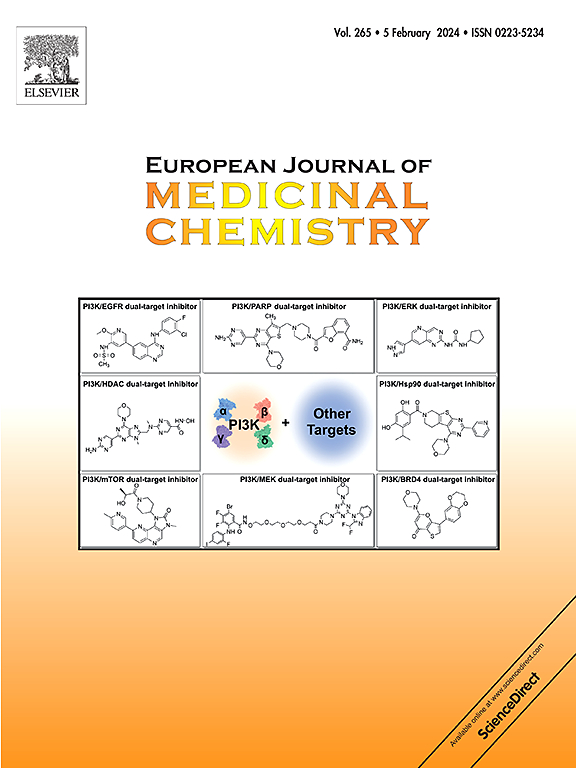免疫抑制抗体药物共轭物的进展与挑战
IF 6
2区 医学
Q1 CHEMISTRY, MEDICINAL
引用次数: 0
摘要
本文章由计算机程序翻译,如有差异,请以英文原文为准。


Advances And Challenges in Immunosuppressive Antibody Drug Conjugates
Since the approval of Mylotarg™ in 2000 for acute myeloid leukemia, antibody-drug conjugates (ADCs) have significantly advanced precision medicine, particularly for oncology applications. ADCs combine an antibody, a linker, and a payload to result in a targeted therapeutic that minimizes toxicity resulting from systemic drug exposure. This review explores the innovative application of ADC technology towards immunosuppressive therapeutics, primarily focusing on antibody-mediated delivery of glucocorticoids (GCs). Despite their potent anti-inflammatory effects, the clinical use of GCs is limited by adverse systemic effects including osteoporosis, high blood sugar, adrenal insufficiency, weight gain, and glaucoma. Therefore, targeted delivery via ADCs presents a promising strategy to enhance therapeutic efficacy while reducing toxicity. Herein, we review the current status of immune-suppressing ADC technology, starting with early investigations of CD163-targeted dexamethasone and moving to the design of ADCs employing next-generation ultra-potent GCs. Additionally, we will discuss the current status of anti-inflammatory ADCs that employ non-glucocorticoid immune-suppressive medications. Throughout, we will highlight preclinical and clinical data that serves to derisk and drive investment in this new therapeutic class. In parallel, we will focus on ADC design principles that illustrate the importance of careful selection of payload, linker, and conjugation technology in this emerging field.
求助全文
通过发布文献求助,成功后即可免费获取论文全文。
去求助
来源期刊
CiteScore
11.70
自引率
9.00%
发文量
863
审稿时长
29 days
期刊介绍:
The European Journal of Medicinal Chemistry is a global journal that publishes studies on all aspects of medicinal chemistry. It provides a medium for publication of original papers and also welcomes critical review papers.
A typical paper would report on the organic synthesis, characterization and pharmacological evaluation of compounds. Other topics of interest are drug design, QSAR, molecular modeling, drug-receptor interactions, molecular aspects of drug metabolism, prodrug synthesis and drug targeting. The journal expects manuscripts to present the rational for a study, provide insight into the design of compounds or understanding of mechanism, or clarify the targets.

 求助内容:
求助内容: 应助结果提醒方式:
应助结果提醒方式:


